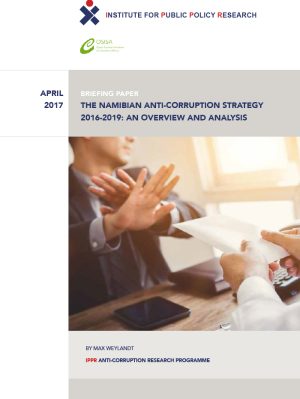The United Nations Convention Against Corruption requires its members to create a framework for the fight against corruption, which often takes the form of a national strategy. The Anti-Corruption Commission recently launched Namibia’s strategy, but there has been little reporting on, or discussion of, this document.
This report outlines the contents of Namibia’s report, and compares it with best practices recommended by the United Nations. It finds that while the strategy includes commendable goals for fighting corruption, it also has key deficiencies.
As the introduction summarises:
The Namibian strategy contains some commendable ideas, but several aspects of it – from drafting to implementation – raise concerns. It appears that the process of drafting the strategy did not include all implementation partners to the extent recommended by best practice guidelines. Some of the goals of the strategy may be too broad to be very useful. Meanwhile, implementation is a real concern: there is little indication that those who are supposed to carry out activities under the plan will be compelled to do so, timelines seem unrealistically optimistic, and there is no substantial plan for Monitoring and Evaluation.

